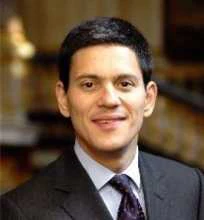 In Democratic Republic of Congo, women refugees rebuild lives, with determination and hope. Photo: UN Women/Catianne Tijerina
In Democratic Republic of Congo, women refugees rebuild lives, with determination and hope. Photo: UN Women/Catianne Tijerina
Over the last several months, global public attention has been captured by the dramatic events unfolding in Afghanistan. This is particularly true with regards to the fate of women and girls, who have in the last twenty years been able to access the education and professional opportunities. Today, these women and girls need support more than ever.
Afghanistan is caught in an economic vice: international development investment in public services has dried up, and the private economy is shriveled by international isolation. Women and girls bear the brunt of humanitarian suffering – disproportionately affected by violence, loss of income and education. Less than 1% of all humanitarian funding goes towards the prevention of gender-based violence and response and accounted for merely 0.5% of the total funding requested for the COVID-19 Global Humanitarian Response Plan – all while the risks to women and girls in humanitarian contexts have increased. These risks and barriers also come at a significant cost: a recent study by the IRC and Georgetown University calculated that gender-based pay and economic participation gaps for refugee women and girls cost the global economy about $1.4 trillion annually.
Organizations like the IRC and the World Bank know firsthand both the dire circumstances facing displaced women and girls and the absence of adequate programming to ease their plight. We have worked together in Afghanistan – through the National Solidarity Program – since 2001. Now, the World Bank’s Gender Dimensions of Forced Displacement (GDFD) research initiative clarifies an agenda for the future.
Since its launch, GDFD has articulated several ways that policymakers and other key stakeholders can begin designing more effective programs in response to humanitarian crises generally and the challenges facing displaced women and girls more specifically:
- Ensure that refugee and other displaced women are included when developing plans for economic recovery from the pandemic, and that safeguards are put in place to protect and expand their access to legal work and key financial services.
- Empower and partner with civil society organizations led by and serving women, particularly women who face multiple and intersecting disadvantages like displacement. This will help ensure from the bottom-up that the voices of women are heard as programs are being designed and implemented.
- Commit to both quantitative and qualitative research focused on developing a deeper understanding of the challenges that women and girls face both within and across contexts.
With 80 million displaced globally and the COVID-19 pandemic still raging, particularly in the world’s conflict hotspots, increased and targeted humanitarian response is more important than ever. Committing to the research and program design needed to safeguard and empower women and girls is indispensable not only for their immediate well-being but their long-term prosperity and that of the societies that surround them.
IRC is now the largest impact evaluation agency in the humanitarian sector, reflecting our commitment to point our programs towards clear outcomes and reflect in our programs the best available evidence. Our Outcomes and Evidence Framework summarizes the state of the research base. Initiatives like the GDFD are an essential part of these efforts and will help ensure that the IRC, World Bank and other global organizations are positioned to help improve the lives of tens of millions of displaced people worldwide in an informed and impactful way. We need more of this investment in evidence-making, and then we need donors, multilateral agencies and NGOs to base their interventions on what is learned.


Join the Conversation